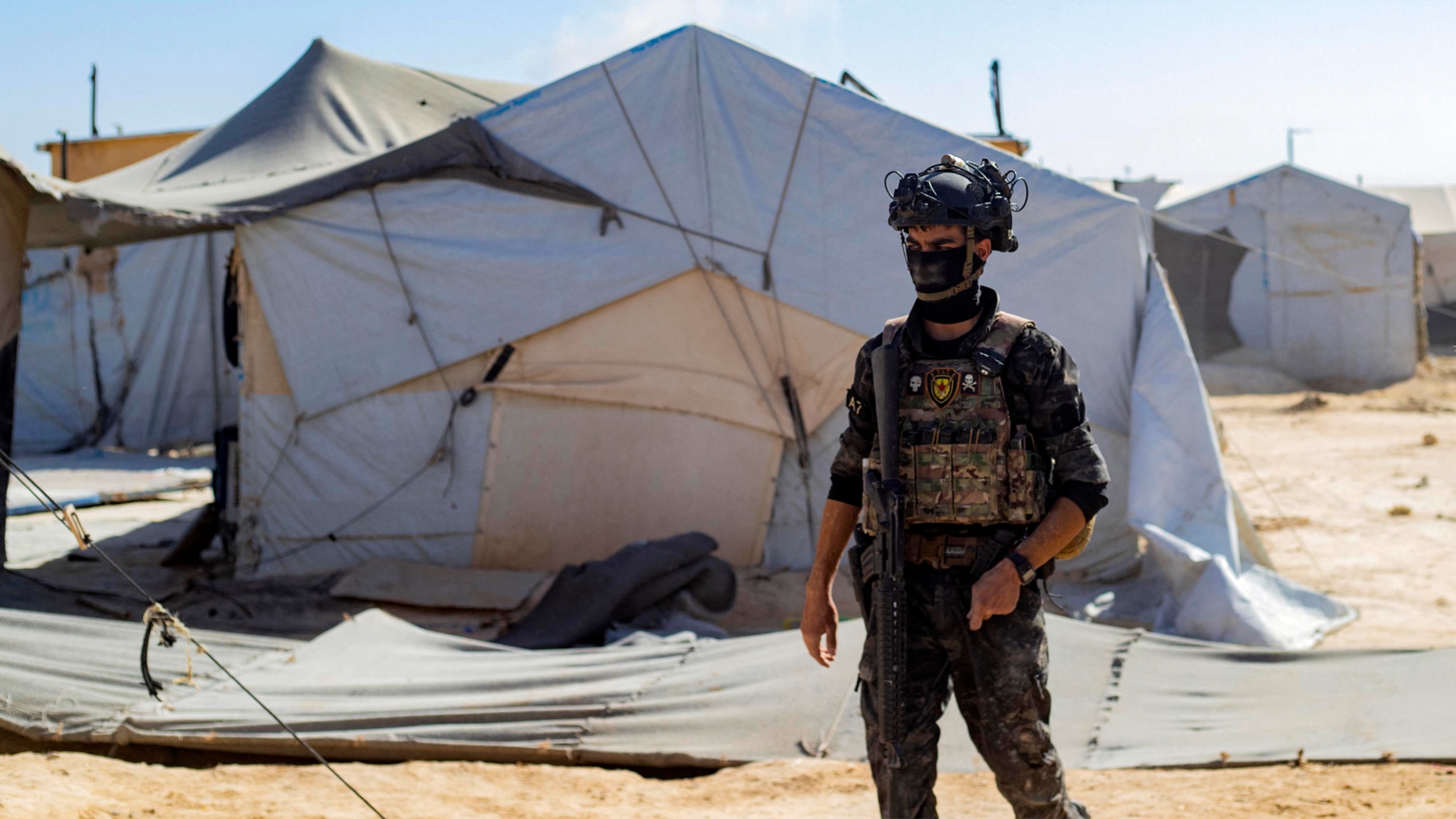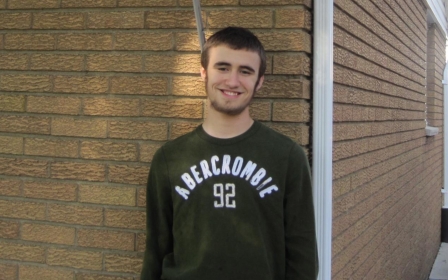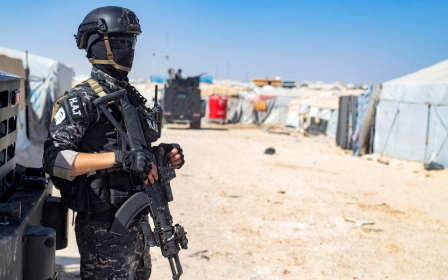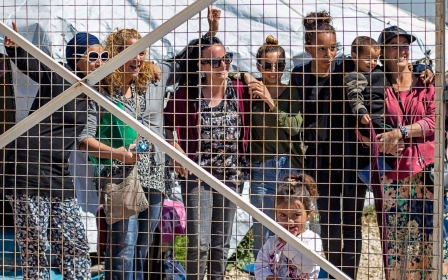Syria: Canada repatriates five people from northwestern camps

Canada has repatriated five citizens from camps in northeast Syria that host a large number of people and relatives of suspected members of the Islamic State (IS) group.
The two women and three children flew back on Thursday, according to a statement by Global Affairs Canada (GAC) and Public Safety Canada (PSC), two government bodies involved in diplomacy and emergency rescue.
“Today, Canada has again taken extraordinary steps to repatriate the remaining two Canadian women and three children identified in the Bring Our Loved Ones Home litigation," GAC and PSC said in the statement.
Earlier this year, Canada agreed to repatriate 19 citizens held in northeast Syria. Only 14 of them made their way back in April, while the remaining five, who were set to join them, were held back and mistreated by guards.
New MEE newsletter: Jerusalem Dispatch
Sign up to get the latest insights and analysis on Israel-Palestine, alongside Turkey Unpacked and other MEE newsletters
Al-Hol camp in northeastern Syria accommodates approximately 55,000 individuals, among them are widows, wives, and children of suspected IS fighters, with Iraqis making up nearly half of the inhabitants.
The US-backed Kurdish-led administration that currently runs it controls large swaths of northeastern Syria.
The camp's annex section hosts around 8,000 women and children, considered the most devoted supporters of the IS group among the camp's residents. Critics have warned of the dire living conditions in Al-Hol, the poor health services, and the lack of proper education for children.
Canada thanked the Kurdish-led administration and the US for efforts in helping repatriate the Canadians.
Criminal offence
“We reiterate that it is a serious criminal offence for anyone to leave Canada to knowingly support a terrorist group and those who engage in these activities will face the full force of Canadian law," the statement said.
Canadian authorities did not release the age or names of the individuals who were repatriated, citing privacy considerations and security reasons.
Last month, the Canadian government was accused of "unyielding cruelty" when it asked mothers who did not hold Canadian citizenship to give up their children for repatriation.
Those children were born to Canadian nationals, either in Canada or abroad, and were held in northeastern Syrian camps.
Repatriation of western nationals from northern Syria has been politically contentious in countries such as France, Canada, Australia, and the UK, where officials have cited national security concerns when arguing against the returns.
On Tuesday, French authorities repatriated 35 people from Al-Hol camp, including ten women and 25 children.
The French anti-terrorism prosecutor's office said that ten women, aged between 23 and 40 years old, and a 17-year-old girl, were either detained upon arrival to France or were scheduled to appear before a judge, and the remaining children would be placed under the custody of the state.
During the peak of the IS's control of parts of Syria and Iraq in 2014, French citizens formed the largest European group to join the ranks of IS fighters.
Middle East Eye delivers independent and unrivalled coverage and analysis of the Middle East, North Africa and beyond. To learn more about republishing this content and the associated fees, please fill out this form. More about MEE can be found here.




